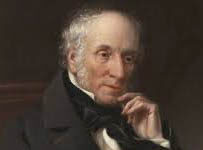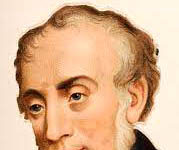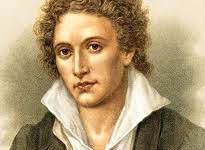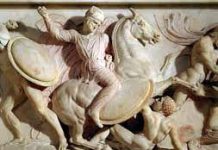Changing Movements of Literature in the Digital Age
Changing Movements of Literature in the Digital Age
Changing Movements of Literature in the Digital Age
In an era where the digital realm is reshaping every facet of human existence, literature stands at a crossroads, poised to evolve and adapt to the demands of an increasingly digitalized world. Just as the printing press revolutionized the dissemination of knowledge in the past, the digital age is fundamentally altering the landscape of literature. As we embark on this digital journey, literature must navigate uncharted territories, leveraging technology to redefine storytelling, access, and engagement while preserving the essence of what makes literature a timeless art form.
Digital Storytelling: Expanding the Narrative Landscape: Imagine literature as a virtual canvas where stories are painted with the pixels of imagination. In the digital age, storytelling takes on new dimensions, embracing multimedia elements to enhance the narrative experience. Interactive eBooks, virtual reality narratives, and immersive storytelling platforms are reshaping how stories are consumed. Just as a painter employs a diverse palette to create a masterpiece, digital storytellers utilize text, images, animations, and sound to craft narratives that engage readers on multiple levels. This convergence of mediums creates a tapestry of experiences that draws readers into the heart of the narrative, blurring the lines between reality and fiction.
Accessible Literature: From Global to Personal: The digital age democratizes access to literature, bridging geographical divides and bringing literary treasures to every corner of the world. Just as ancient scrolls were shared across civilizations, the digital realm allows readers to access a vast library of works at the touch of a screen. E-books, audiobooks, and online platforms make literature universally accessible, transcending physical limitations. This transformation mirrors the concept of a digital agora, where ideas are exchanged and cultures intermingle in a virtual marketplace of knowledge. The future of literature promises a world where literary horizons extend beyond borders, enriching lives regardless of location or background.
Interactivity and Engagement: A New Dialogue: Imagine literature as a dynamic conversation between author and reader, where engagement goes beyond the confines of the page. The digital age fosters a symbiotic relationship between creators and consumers, akin to a live dialogue. Social reading platforms, online book clubs, and reader-generated content invite individuals to participate actively in discussions about literature. Just as a theatrical performance engages the audience, digital literature encourages readers to become co-creators, generating annotations, comments, and adaptations that enrich the literary landscape. This interactive tapestry of engagement transforms the solitary act of reading into a communal experience.
Challenges and Opportunities: Preserving Authenticity: The digital age also brings challenges to the forefront, raising questions about the preservation of literary authenticity. Just as ancient texts were painstakingly copied to ensure their survival, digital literature demands measures to protect intellectual property, combat misinformation, and preserve the integrity of original works. Blockchain technology, digital signatures, and copyright innovations offer solutions to safeguard the essence of literature in an era of rapid digital reproduction. As literature navigates these challenges, it transforms them into opportunities for innovation that uphold the integrity of storytelling.
Fusion of Art and Science: Literary Exploration in a New Dimension: In the digital age, literature merges with science and technology, much like the alchemy of old blended elements to create something new. The fusion of literature with artificial intelligence, data analytics, and machine learning opens doors to uncharted territories of exploration. Automated content generation, personalized reading recommendations, and immersive virtual libraries become the threads that weave a narrative tapestry of innovation. This synthesis of art and science ushers in a new Renaissance, where literature evolves into a dynamic discipline that engages both the creative and analytical mind.
Beyond Language: Literature in a Multilingual World: Imagine literature as a universal language that transcends linguistic barriers, much like music unites diverse cultures. In the digital age, translation technologies redefine the notion of language itself. Real-time translation tools, multilingual e-books, and collaborative platforms dissolve language constraints, creating a literary sphere where voices from around the world converge. Just as ancient trade routes facilitated the exchange of ideas, digital literature becomes a global agora where diverse narratives intertwine, fostering cross-cultural understanding and unity.
In conclusion, the future of literature in the digital age is a landscape both familiar and novel, where the age-old art of storytelling encounters the technological possibilities of tomorrow. Digital storytelling expands the narrative canvas, accessible literature bridges global gaps, interactivity fosters engagement, challenges become opportunities, art and science intertwine, and language transcends borders. As literature embarks on this digital journey, it remains a beacon of human creativity, adapting and evolving while remaining true to its essence—a timeless conduit of imagination and connection. 0 0 0.
Changing Movements of Literature in the Digital Age
N.B. The article ‘Changing Movements of Literature in the Digital Age’ originally belongs to the book ‘The Origin Evolution & Functions of Literature‘ by Menonim Menonimus. Changing Movements of Literature in the Digital Age
Books of Literary Criticism by M. Menonimus:
- World Short Story Criticism
- World Poetry Criticism
- World Drama Criticism
- World Novel Criticism
- World Essay Criticism
- Indian English Poetry Criticism
- Indian English Poets and Poetry Chief Features
- Emily Dickinson’s Poetry-A Thematic Study
- Walt Whitman’s Poetry-A Thematic Study
- Critical Essays on English Poetry
- Tawfiq al-Hakim’s Novel: Return of the Spirit-An Analytical Study
- Tawfiq al-Hakim’s Novel: ‘Yawmiyyat Naib Fil Arayaf’-An Analytical Study
- Analytical Studies of Some Arabic Short Stories
- A Brief History of Arabic Literature: Pre-Islamic Period (500 AD-622 AD)
- A Brief History of Arabic Literature: Early Islamic Period (622 AD-661 AD)
- Reviews on William Shakespeare’s Works
- Reviews of Charles Dickens’ Works
- Reviews of John Milton’s Literary Works
- Reviews of Some Iconic Travelogues
- Shakespeare’s Sonnets-Critical Studies
- Analytical Studies of Selected Poems of Sarojini Naidu
- Analytical Studies of Selected Poems of Rabindranath Tagore
- Analytical Studies of Selected Indian English Poems
- Reviews of Selected Motivational Books
- Origin Evolution & Functions of Literature …
Additional Searches::
- The Functions of Literature
- Evolutionary Literary Study
- Functions of Literature
- Principles of Literature
- Literary Theory
- Writing About Literature in the Digital Age











